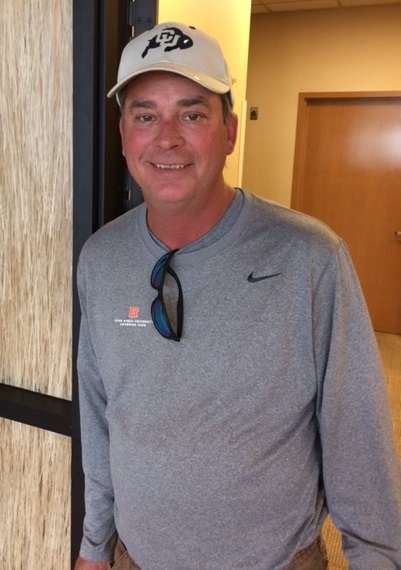Colon Screening Increasingly a Lifesaver

A Nampa husband and wife duo both beat cancer thanks to early detection by screening through a colonoscopy and a mammogram.
Like many baby boomers reaching middle age, Nampa resident Tre’ Mendiola did not want to have anything to do with a colonoscopy. “I get a regular physical from my doctor each year,” says Tre’. “He's been telling me since I was 50, 'You need to think about getting a colonoscopy,’ but I was pretty much dead set against it – just the whole thought of the thing – ‘I'm not letting them do that!’"
After Tre’s wife Mary was diagnosed with breast cancer, Tre’ was there by her side as she underwent a lumpectomy and chemotherapy. Fortunately, Mary survived. Her Saint Alphonsus physicians encouraged Mary to have routine exams for better health. Because she had detected her breast cancer early with a mammogram, Mary decided that she and her family would be more proactive with their health.
“She said, ‘We're going on a double date to get colonoscopies and we're going together’,” says Tre’, who finally relented and had a colonoscopy. Luckily for Tre’, he listened to his wife’s advice.
“I had the colonoscopy when I was 54 and they found I had polyps, which the doctor removed,” says Tre’. “The doctor who did my procedure was worried about the polyps, so I got a biopsy the same week and the polyps turned out to be cancerous. The doctor did a second colonoscopy to make sure he removed all of the polyps he could see, but that’s not always enough. They can't tell if you still have cancer left in your colon after they remove polyps, so my doctor recommended that I have the area of my colon near the polyps surgically removed. He said, 'If this was my dad sitting here, I’d tell him to get that part of his colon removed.’”
"I kept telling my wife, I don't have cancer. I have a couple of polyps taken out of me that were cancerous, but I don't have cancer. A friend of ours was in the doctor's office when we went for the second colonoscopy and she pulled my wife aside and said, 'He has cancer.'"
"My wife was so strong during her breast cancer ordeal; I don't think I would have been as strong about my cancer if she hadn't been through it first. I saw how her attitude was and I just couldn't get too worked up over my situation."
After undergoing colorectal surgery, Tre’ took approximately six weeks to recover at home and then went back to his job as a lead at Wabtec in Boise, where he builds railroad locomotives. He needed no tubes or bags after his surgery and was able to adjust to a near-normal lifestyle less than a year after his operation. Today, at age 56, he is doing fine and after another screening this year, he won’t need another for two more years if his results show cancer has not returned.
“It's been a couple of years now and I'm feeling really good,” says Tre’. “I have a lot of friends who are my age or a little older who haven't had a colonoscopy yet and I keep telling them that they need to go in. The response from probably half of them is, 'I don't want to know.' I think many people don't want to know if they have it or they're afraid of getting bad news. I can’t stress enough that a colon screening is something that can be life-saving."
Where to Go for a Colon Screening
Detecting cancer early is often the difference between surviving the disease or not, no matter what surgery or post-operative treatments and medications one takes. To learn more about Saint Alphonsus colon screenings, including colonoscopies, call 208-367-3627.
For more information, visit:
https://www.saintalphonsus.org/specialty/cancer-care/services/preventive-screenings
or
